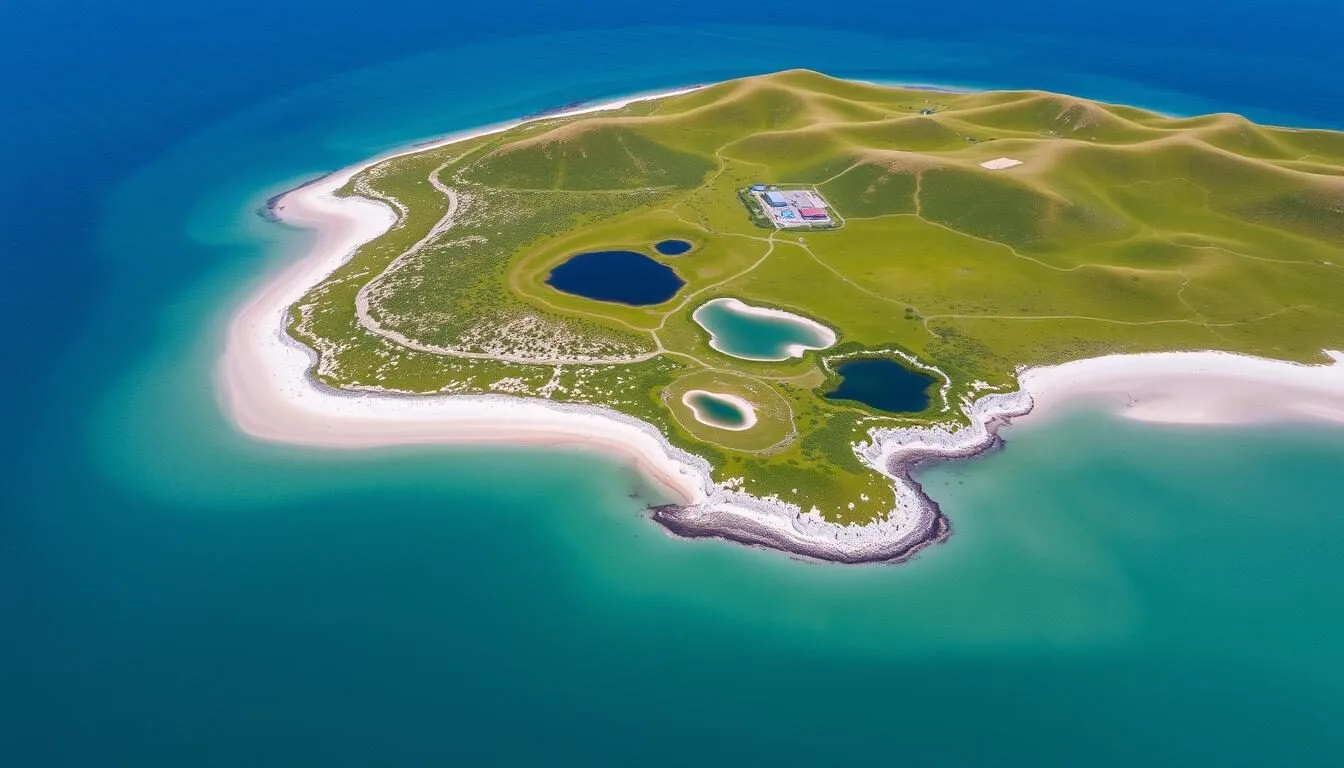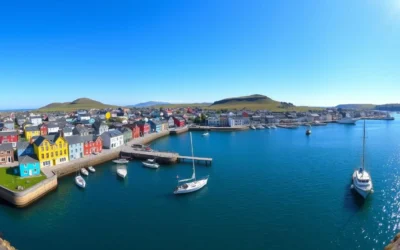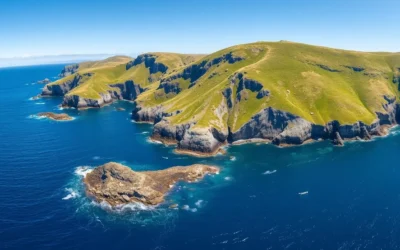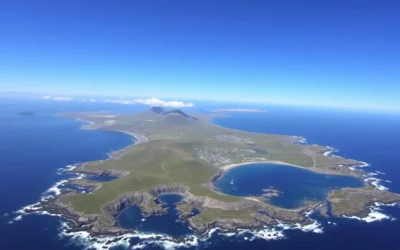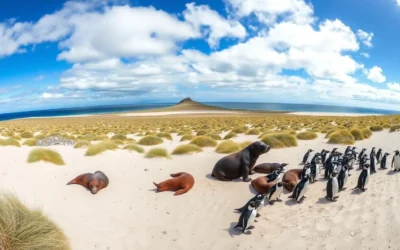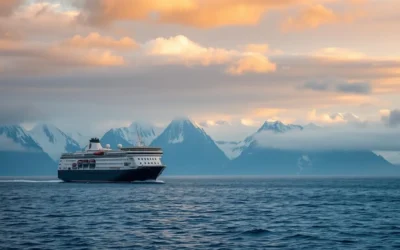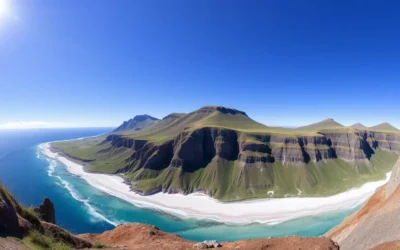Did you know that Pebble Island hosts over 42 breeding bird species and is home to the longest beach in the Falkland Islands? This remote paradise stretches 24 miles (38.6 km) across the northwestern Falklands archipelago, offering visitors a pristine wilderness experience that combines spectacular wildlife encounters with fascinating wartime history.
Getting There & Planning Your Journey
Reaching Pebble Island requires some advance planning, as it’s located in one of the world’s most remote archipelagos. Most visitors arrive via the Falkland Islands Airservice (FIGAS) that operates small aircraft from Stanley, the capital of the Falklands. These flights land directly on Elephant Beach when conditions permit – an unforgettable arrival experience as you touch down on the island’s stunning 6.4 km (4 mile) white sand beach.
Ready to start your Falklands adventure?
Book your flights to the Falkland Islands with our trusted partner. Regular services connect from the UK (via RAF Brize Norton) or South America (via Santiago, Chile).
For those arriving by sea, some expedition cruise ships include Pebble Island on their Falklands itineraries. These typically depart from Ushuaia (Argentina) or Punta Arenas (Chile). The island can also be reached by the inter-island ferry service from mainland East Falkland, though this requires additional land transportation.
Explore the Falklands by Sea
Many expedition cruises include Pebble Island on their Falklands itineraries, offering a unique way to experience this remote destination.
Best Time to Visit & Weather Tips
The optimal time to visit Pebble Island is during the Falklands’ summer months (November through March). This period offers milder temperatures averaging 10-15°C (50-59°F) and extended daylight hours for wildlife viewing and outdoor activities.
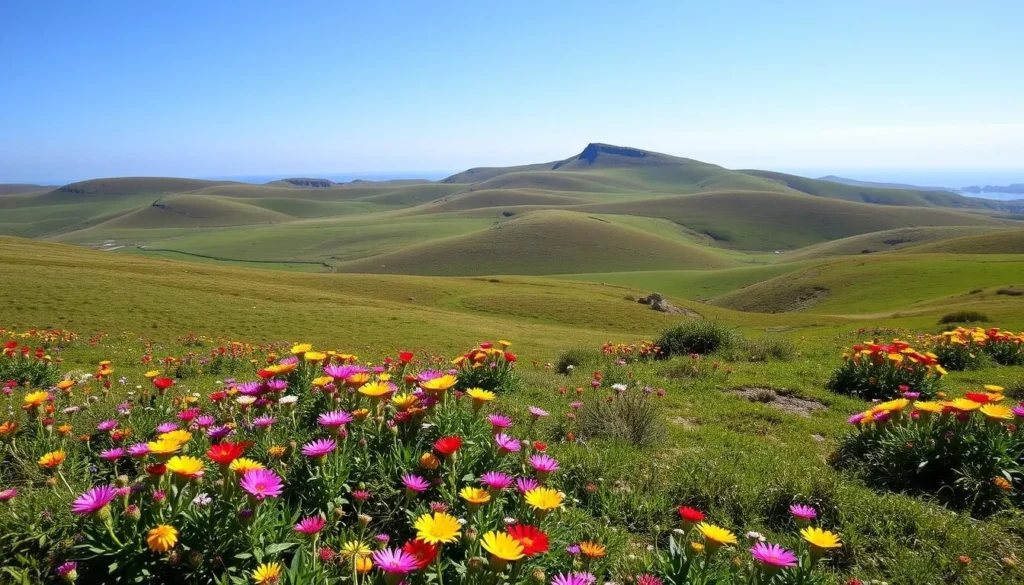
Peak Season (Dec-Feb) Benefits
- Maximum wildlife activity with penguin chicks hatching
- Longer daylight hours (up to 18 hours)
- Milder temperatures for outdoor exploration
- Better conditions for photography
Peak Season Considerations
- Limited accommodation requires booking months in advance
- Higher prices for flights and lodging
- Unpredictable weather can still occur
- Stronger winds, especially in January
The shoulder seasons (October-November and March-April) offer fewer crowds while still providing good wildlife viewing opportunities. Pack layers regardless of when you visit – the Falklands weather can change rapidly, and wind is a constant companion throughout the year.
Where to Stay on Pebble Island
Accommodation options on Pebble Island are limited but charming, offering authentic Falklands hospitality in a spectacular setting. Advance booking is essential, especially during the peak summer season.
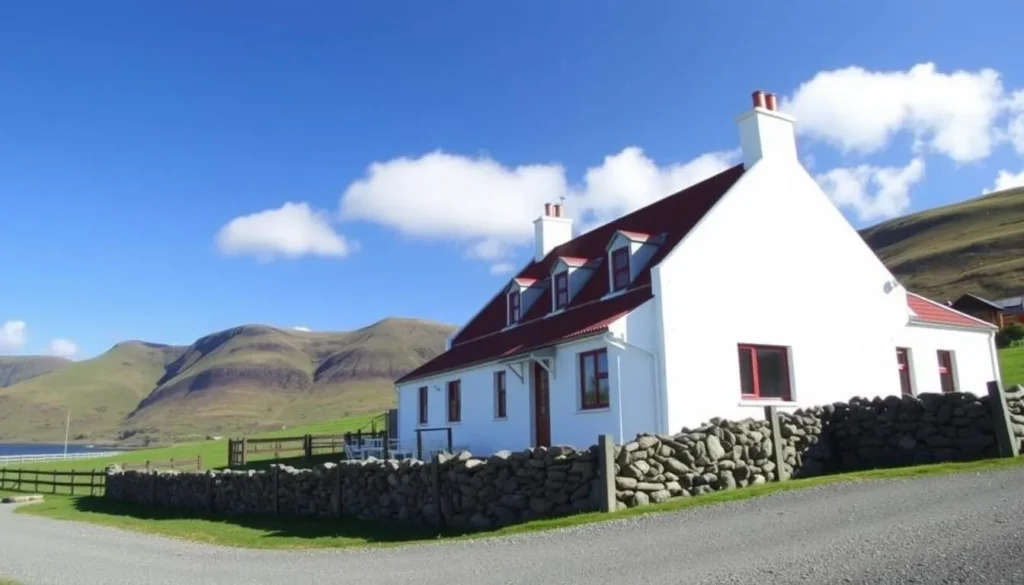
Pebble Island Lodge
This renovated farmhouse sits at the heart of the island settlement and serves as the main accommodation option. The lodge offers comfortable rooms, home-cooked meals featuring local ingredients, and a warm, welcoming atmosphere. The knowledgeable owners provide guided tours of the island’s highlights.
The lodge’s central location makes it an ideal base for exploring both the eastern and western sections of the island. Rooms feature stunning views of the surrounding landscape.

The Nest
This self-catering option provides a more independent stay while still offering the option of full-board meals. Perfect for families or small groups wanting their own space while exploring the island.
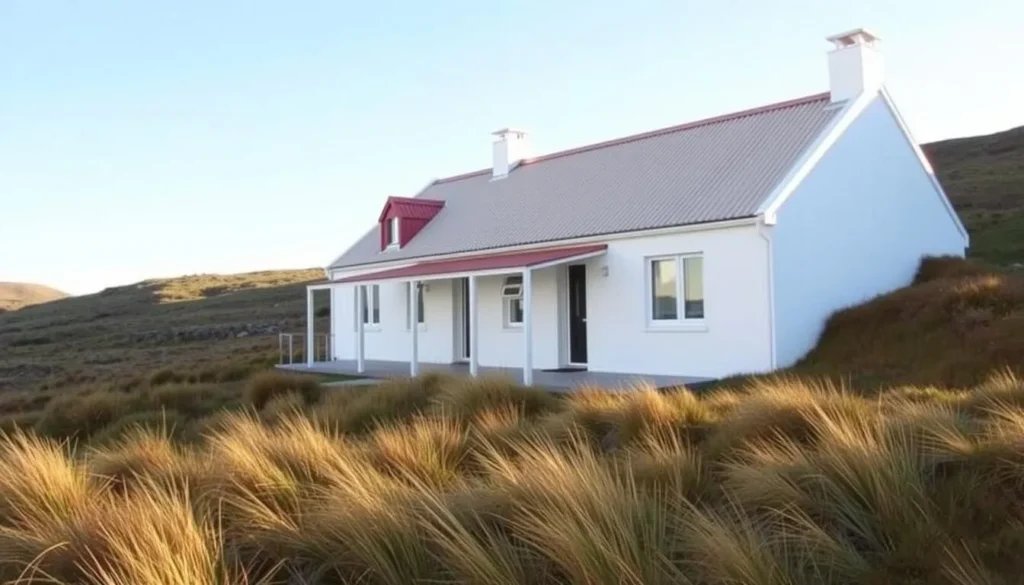
Markham House
Another excellent self-catering option that also offers full-board arrangements. Markham House provides comfortable accommodations with easy access to the island’s attractions and guided tour opportunities.
Pro Tip: Accommodation on Pebble Island is extremely limited. Book at least 6-12 months in advance for peak season visits (December-February). Most stays include full-board arrangements with home-cooked meals, as there are no restaurants on the island.
Wildlife Encounters & Nature Experiences
Pebble Island is a wildlife enthusiast’s dream and has been designated an Important Bird Area. The island hosts an impressive diversity of species across its varied habitats of beaches, ponds, cliffs, and grasslands.

Penguin Colonies
Three penguin species call Pebble Island home. The western end features one of the Falklands’ largest rockhopper penguin colonies, often with a few macaroni penguins mixed in. Gentoo penguins establish colonies surprisingly far inland, while burrowing magellanic penguins are abundant along the coastline.
Birdwatching Paradise
The eastern end’s wetlands host 18 resident waterfowl species, including black-necked swans, Chiloë wigeon, and silver teal. Lucky visitors might spot rarer species like red shoveler and cinnamon teal. The island’s varied terrain also supports southern giant petrels, striated caracaras, peregrine falcons, and turkey vultures.
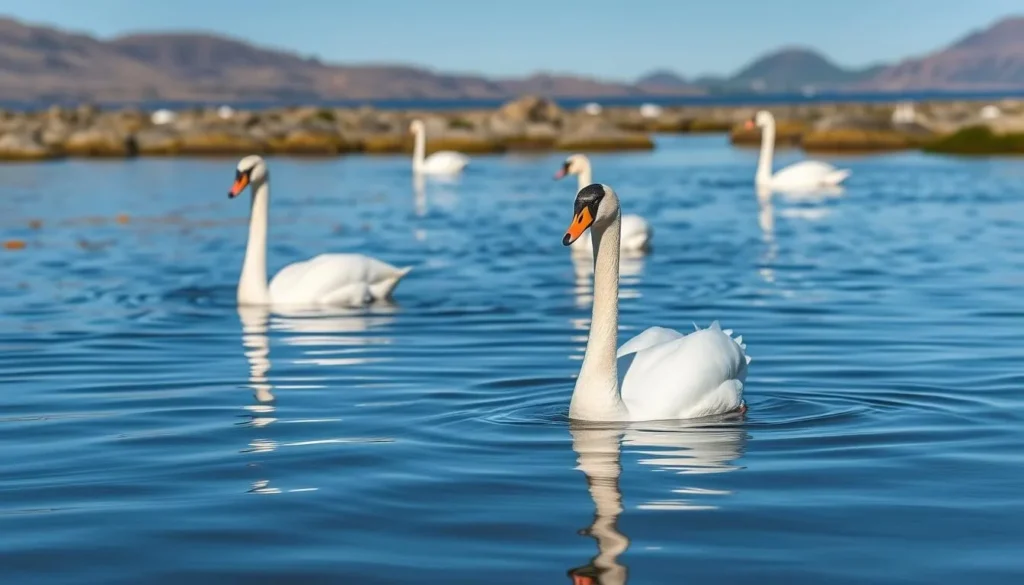
Experience Pebble Island’s Wildlife
Join expert-guided wildlife tours to maximize your chances of spotting Pebble Island’s diverse species in their natural habitats.
Marine Life
The waters surrounding Pebble Island are rich with marine life. Southern sea lions can be spotted along the sea cliffs of Cape Tamar, while offshore waters sometimes host whales and dolphins. The island’s beaches and coastline provide excellent opportunities for observing marine birds including imperial cormorants and black-crowned night-herons.
Top Activities & Attractions
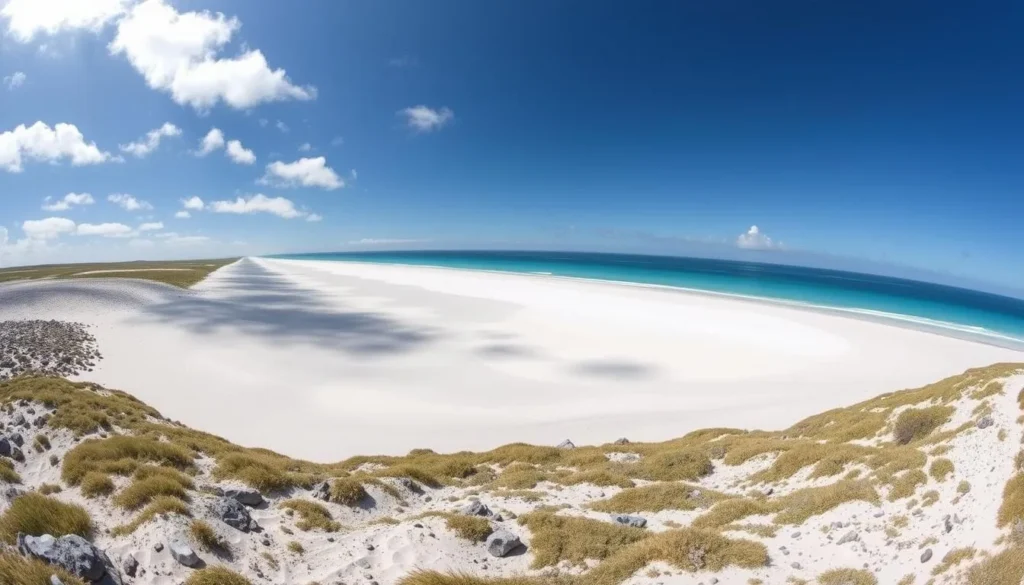
East End Tour
The eastern section of Pebble Island features a gentler landscape with wetlands, ponds, and the spectacular Elephant Beach – the longest sand beach in the Falklands at 6.4 km (4 miles). This area offers excellent birdwatching opportunities, particularly for waterfowl and wading birds. The tour typically includes visits to several penguin colonies and scenic viewpoints.
West End Tour
The more rugged western end features three main peaks: First Mountain (277 m/909 ft), Middle Peak (214 m/704 ft), and Marble Mountain (237 m/779 ft). This area offers challenging hiking with rewarding panoramic views of neighboring islands and the mainland. The west end also hosts rockhopper penguin colonies and interesting geological formations.
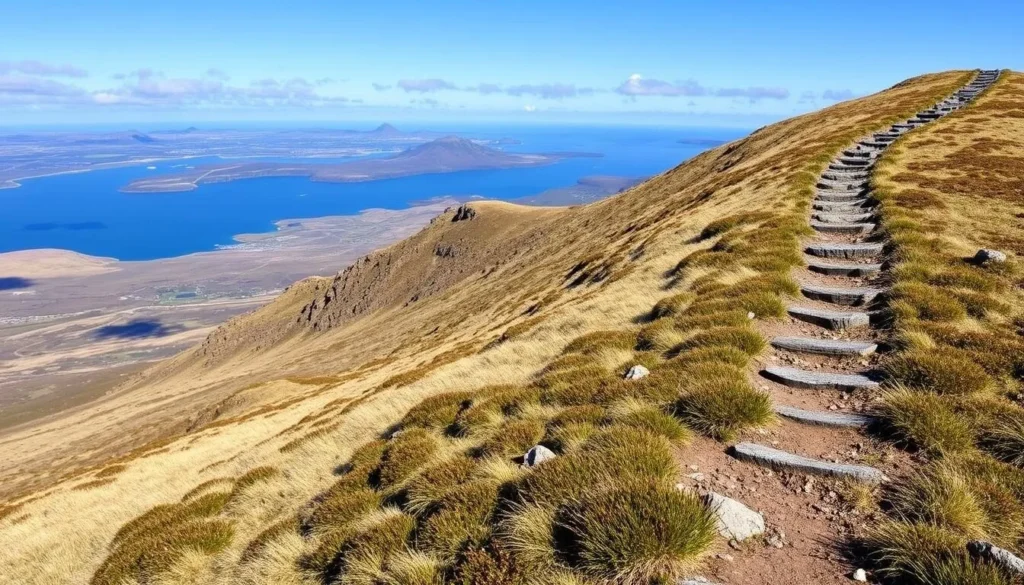
Explore Pebble Island’s Diverse Terrain
Book guided hiking tours and 4×4 excursions to experience the best of Pebble Island’s varied landscapes.
1982 Conflict Sites
Pebble Island played a significant role during the 1982 Falklands War. Visit the site of the famous SAS raid on the Argentine-occupied airstrip, marked by a commemorative cairn. Other historical sites include the HMS Coventry memorial on First Mountain, the Argentine Learjet memorial near Marble Mountain, and the remains of several Argentine aircraft shot down during the conflict.
Photography
The island’s diverse landscapes, abundant wildlife, and historical sites make it a photographer’s paradise. The quality of light, particularly during the golden hours of early morning and late afternoon, creates perfect conditions for capturing the island’s natural beauty and wildlife.
Practical Travel Tips
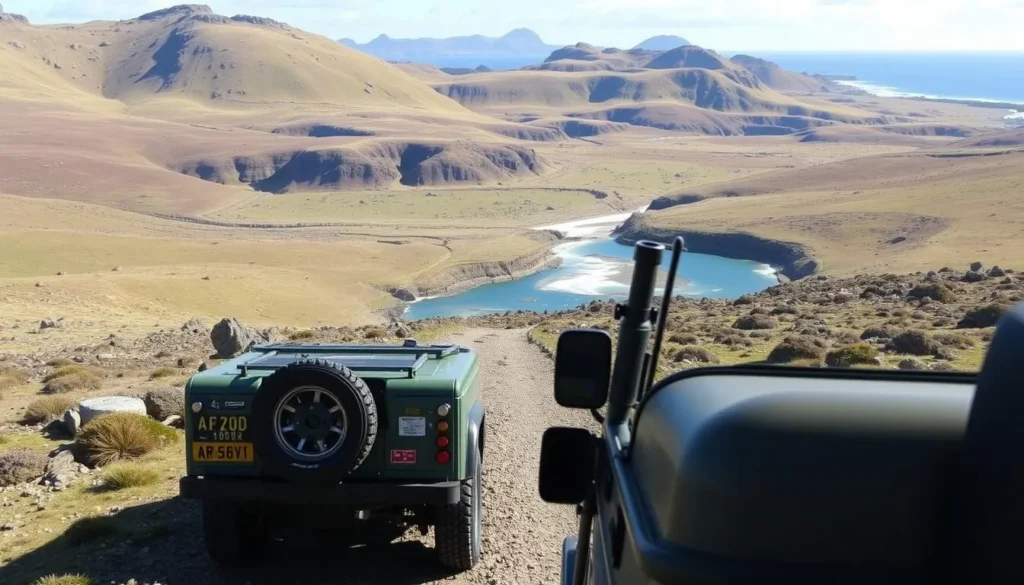
Getting Around
There are no paved roads or public transportation on Pebble Island. Exploration is typically done via guided 4×4 tours arranged through your accommodation. Some areas are accessible by foot, but the island’s size (24 miles/38.6 km long) makes vehicle transport necessary for seeing all the highlights.
Need transportation in the Falklands?
While you won’t need a rental car on Pebble Island itself, you might want one for exploring Stanley before or after your island visit.
What to Pack
| Essential Items | Why You Need It |
| Waterproof jacket & pants | Weather changes rapidly; protection from wind and rain is essential |
| Layered clothing | Temperatures fluctuate throughout the day |
| Sturdy hiking boots | Terrain is uneven and can be boggy |
| Binoculars | Essential for wildlife viewing |
| Camera with zoom lens | Capture wildlife from a respectful distance |
| Sunscreen & hat | UV exposure is high, even on cloudy days |
| Cash (GBP or FKP) | No ATMs or card facilities on the island |
Communications
Internet access and mobile coverage are limited on Pebble Island. Some accommodations offer Wi-Fi, but it’s typically slow and unreliable. Consider this an opportunity to disconnect and fully immerse yourself in the island experience.
Important: There are no medical facilities on Pebble Island. Bring any necessary medications and a basic first aid kit. For emergencies, evacuation to Stanley would be required.
Map & Location
Pebble Island is located in the northwest of the Falkland Islands archipelago.
Ready for Your Pebble Island Adventure?
Pebble Island offers a truly unique travel experience that combines spectacular wildlife encounters, fascinating history, and breathtaking landscapes. From walking among penguin colonies to hiking rugged peaks and exploring wartime relics, this remote island paradise delivers unforgettable memories for those willing to venture off the beaten path.
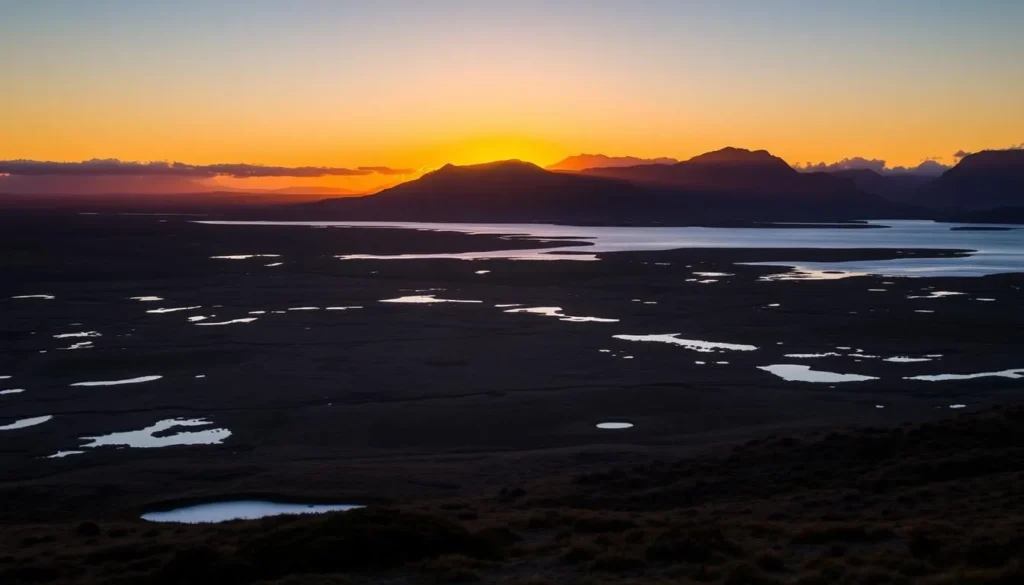
Begin Your Falklands Journey Today
Start planning your trip to Pebble Island and experience one of the world’s most unique and unspoiled destinations.
The above is subject to change.
Check back often to TRAVEL.COM for the latest travel tips and deals.
